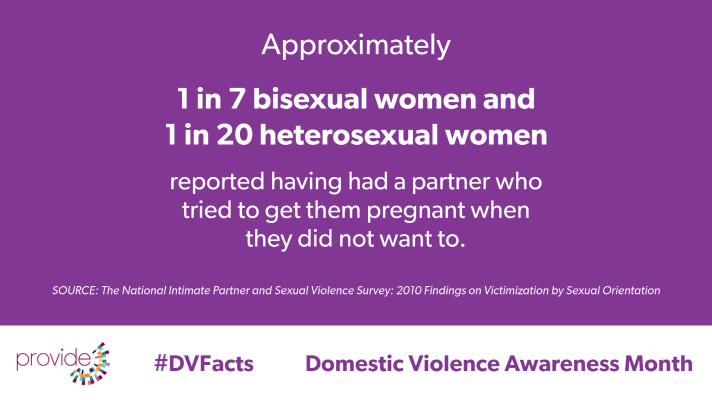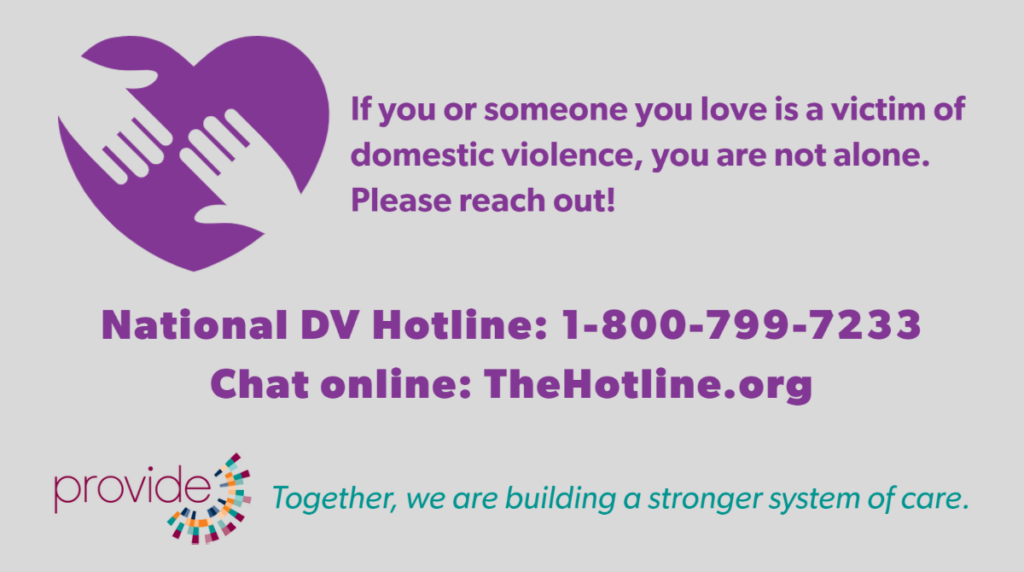It’s Domestic Violence Awareness Month, so let’s talk about what that means in relation to reproductive health care. The term intimate partner violence (IPV) is often used interchangeably with relationship violence or domestic violence. This term is used to describe violence in relationships as distinguished from other types of violent experiences. Because IPV and reproductive health are closely connected issues, advocates and frontline providers are critical links to providing safe, stigma-free information and care.
Many women who experience IPV also experience reproductive and sexual coercion. Reproductive coercion involves behavior such as explicit attempts to impregnate a partner against their will, control outcomes of a pregnancy, coerce a partner to have unprotected sex, and interfere with contraceptive methods. One in four women in the U.S. experience IPV in her lifetime, and approximately one in four women report coerced sex at some point in her life. Women experiencing both IPV and coercion are less likely to have autonomy to make decisions about contraception and family planning. IPV, particularly acts of sexual violence and reproductive control, disproportionately impact women of reproductive age and can compromise women’s sexual and reproductive health and autonomy.
Recent studies have affirmed the connection between IPV and sexual and reproductive outcomes. These outcomes include being at a greater risk of unintended pregnancy, more than one abortion, second trimester abortions, contraception interference, and STIs. The risk for unintended pregnancy doubles among women reporting both IPV and reproductive coercion. Frontline providers and advocates play an essential role in prevention of IPV and reproductive and sexual coercion by discussing healthy, consensual, and safe relationships as well as all pregnancy options (continuing the pregnancy to parent, planning an adoption, or having an abortion) with all clients. Having these discussions with clients empowers them to express their true preference and take charge of their health care while also helping providers address barriers along the care continuum.
Provide is committed to supporting health and social service providers working in domestic, interpersonal, and sexual violence systems. Our Abortion Referrals Training prepares and equips these professionals for successful client outcomes. The feedback we receive from training participants is why we work to build a stronger system of care for providers and their clients:
“A lot of clients experience reproductive coercion. It was really important to have the tools and be able to express that compassion, understand what they’re going through, and empower them to make the choices that are best for them.”
— Domestic Violence Hotline Advocate
Need to make a referral? Use our Abortion Referrals Tool at ProvideReferrals.org.
Download our co-branded Futures Without Violence Patient Safety Card.
National Domestic Violence Resources
- Futures Without Violence
- National Coalition Against Domestic Violence
- National Network to End Domestic Violence
- National Resource Center on Domestic Violence
- Office on Violence Against Women (U.S. Department of Justice)


